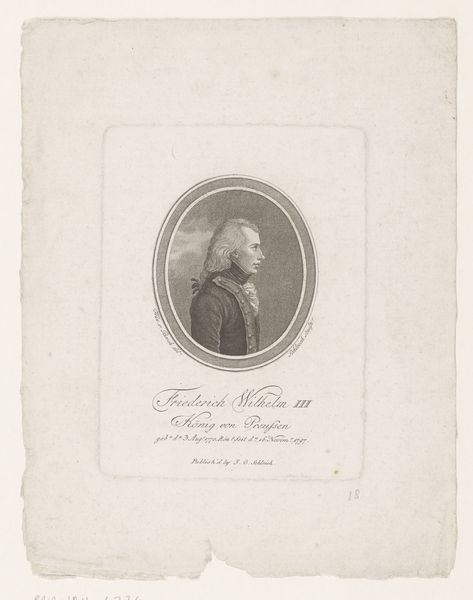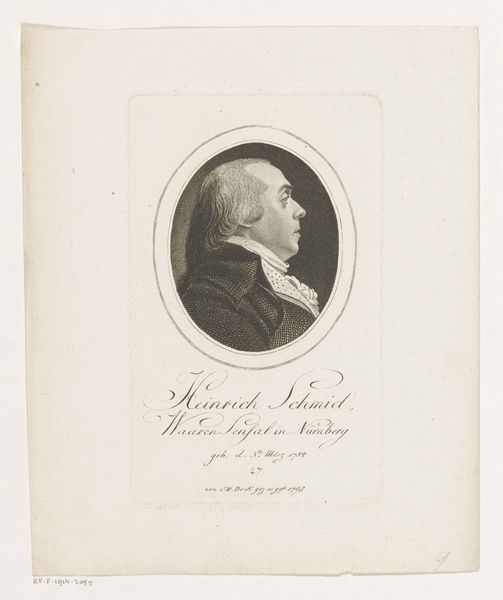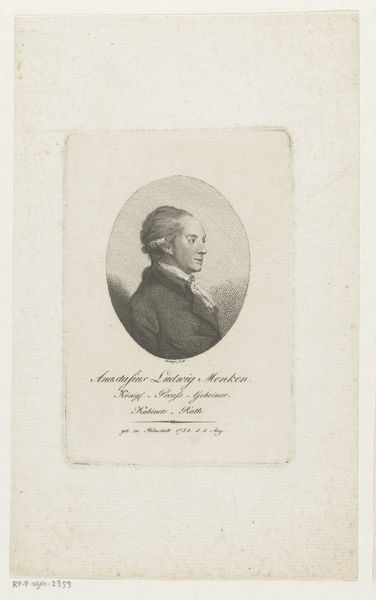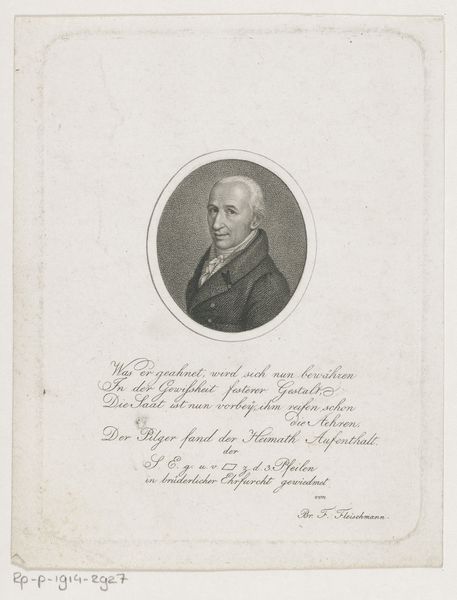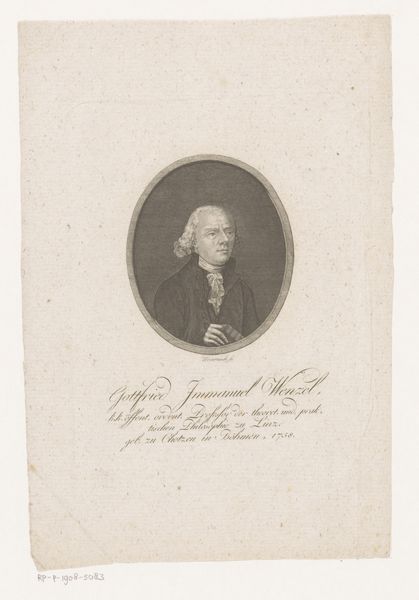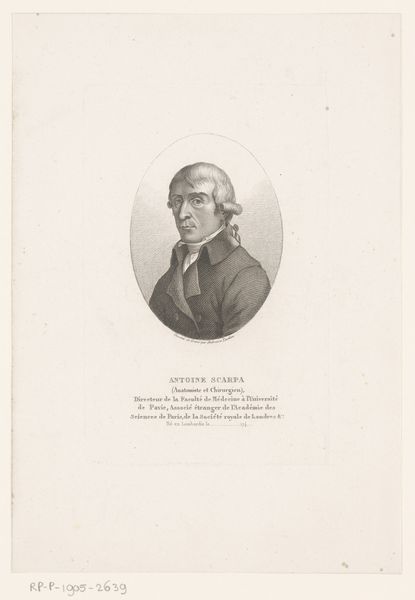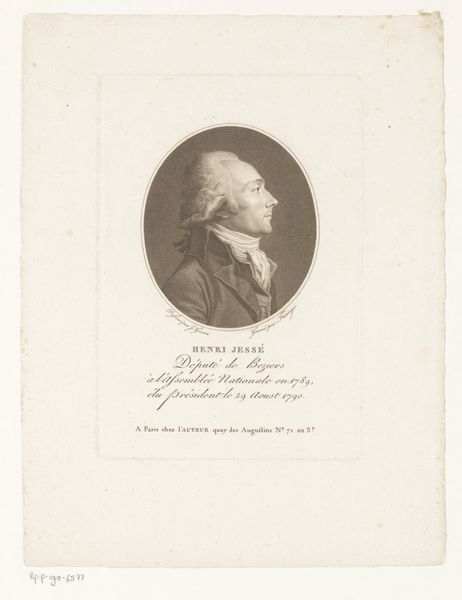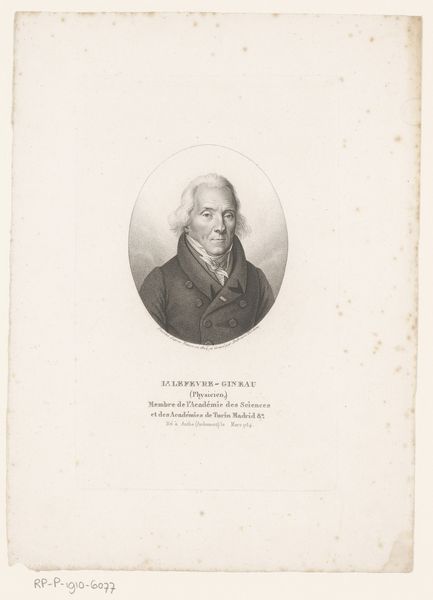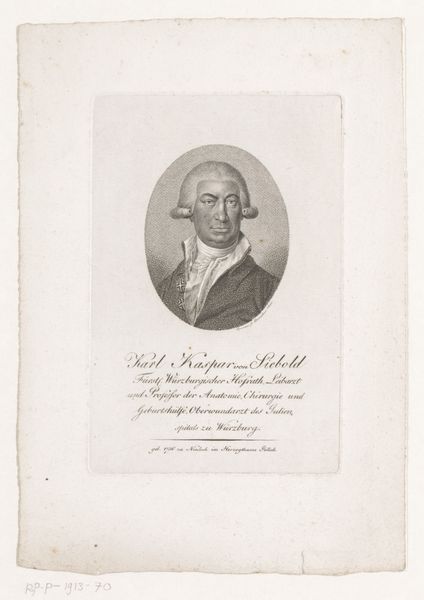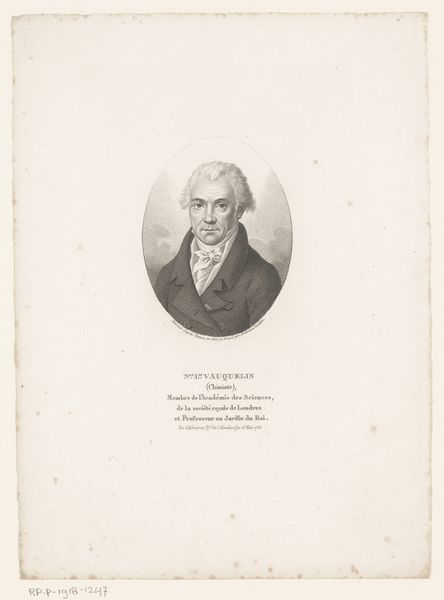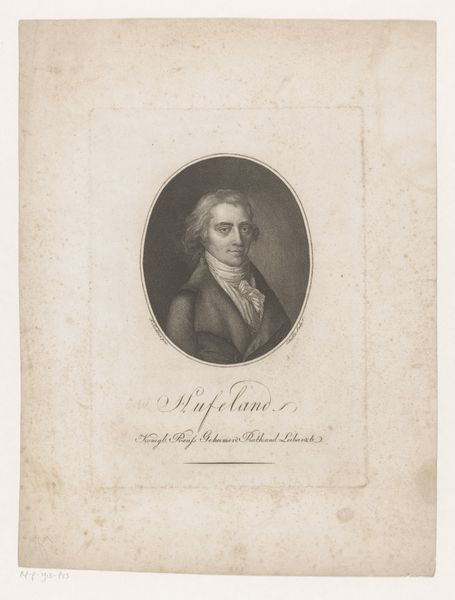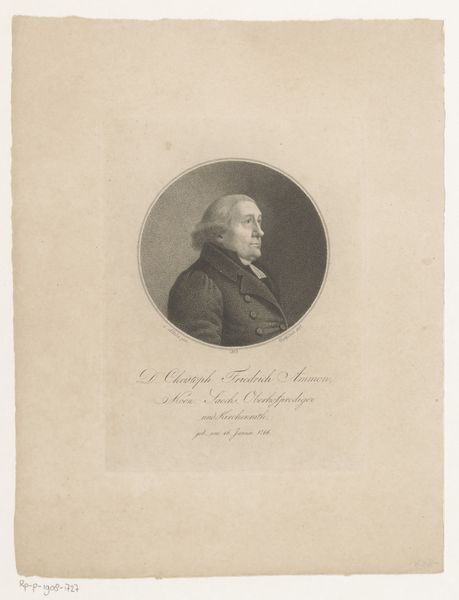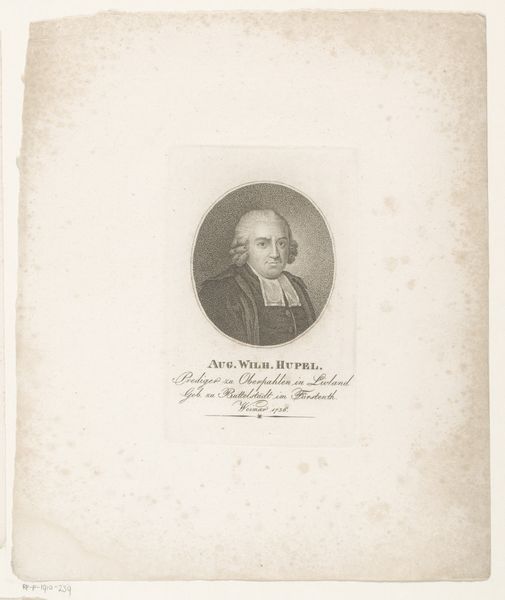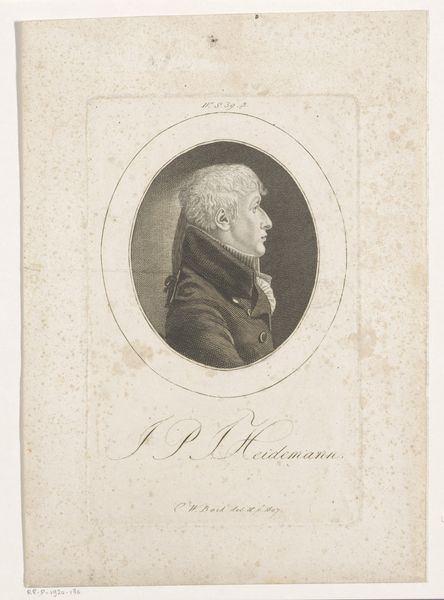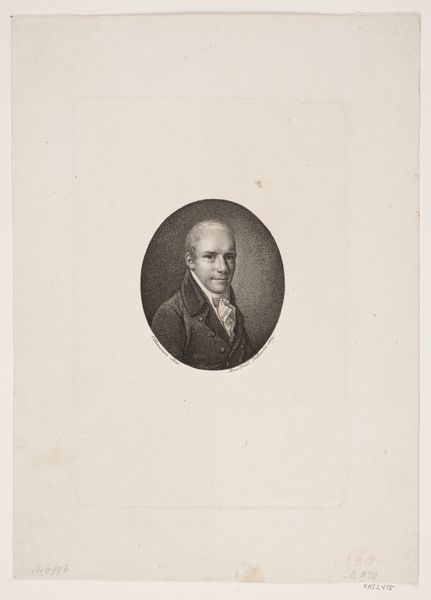
drawing, print, etching, engraving
#
portrait
#
drawing
#
neoclacissism
# print
#
etching
#
old engraving style
#
pencil drawing
#
history-painting
#
engraving
Dimensions: height 152 mm, width 98 mm
Copyright: Rijks Museum: Open Domain
This print of Carl Ludwig Willdenow was likely made around the turn of the 19th century by Johann Daniel Laurenz II. It’s an etching, a printmaking process that relies on acid to bite an image into a metal plate, which is then inked and printed on paper. Consider the labor involved: the highly skilled draftsman who first renders the image, the etcher who carefully translates that drawing into a matrix, and the printer who finally pulls the impression. Etching was the perfect medium to reproduce images at the time. Think of it as the Instagram of its day. But why choose etching over other, more painterly techniques? The incisive line of etching lends itself to scientific illustration. The portrait itself, despite being an image of an individual, has the qualities of an entomological sample, caught for close examination. When we look at the print this way, we begin to appreciate how the very materials and processes of art are tied to wider social issues, particularly knowledge and labor.
Comments
No comments
Be the first to comment and join the conversation on the ultimate creative platform.
